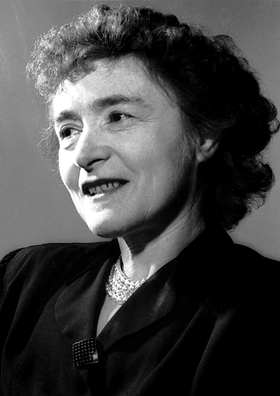Why was Gerty Cori Awarded the Nobel Prize for Physiology or Medicine in 1947?
Gerty Cori: Nobel Laureate for Unraveling Carbohydrate Metabolism
In 1947, the Nobel Prize for Physiology or Medicine was awarded to Gerty Cori, along with her husband Carl Ferdinand Cori and Argentine physiologist Bernardo Houssay. Gerty Cori’s significant contributions to science were recognized for her pioneering work in carbohydrate metabolism, particularly her investigations into glycogen and glucose metabolism. This article explores the groundbreaking research that earned Gerty Cori the Nobel Prize and her lasting impact on the field of biochemistry.

Breaking Gender Barriers in Science:
Gerty Cori’s remarkable achievements in science are all the more impressive considering the era in which she conducted her research. Born in 1896, she faced significant gender barriers prevalent in academia and research during her time. Despite the obstacles, Gerty persevered and went on to become the third woman in history to receive a Nobel Prize in the sciences, and the first woman to be honored in the field of Physiology or Medicine.
Discovering the Cori Cycle and Glycogen Metabolism:
One of Gerty Cori’s most notable contributions was her collaboration with her husband Carl in discovering the Cori Cycle, a fundamental metabolic pathway in the body. The Cori Cycle elucidates the conversion of glycogen to glucose in muscle tissues during periods of high energy demand and its subsequent re-synthesis in the liver.
In the 1920s and 1930s, Gerty and Carl Cori conducted groundbreaking experiments to trace the fate of glycogen in the body. Through meticulous research with animals, they demonstrated the cyclical nature of glycogen metabolism, with muscles and the liver playing crucial roles in maintaining energy balance. This discovery revolutionized the understanding of carbohydrate metabolism and paved the way for further studies in cellular energetics.
Unraveling the Enzymatic Basis of Glycogen Metabolism:
Gerty Cori’s research also focused on the enzymatic processes involved in glycogen metabolism. She played a pivotal role in identifying and characterizing the enzyme glucose-1-phosphate, which is involved in glycogen synthesis. Additionally, the Coris’ work led to the identification of the enzyme phosphorylase, responsible for breaking down glycogen into glucose units in muscle tissue.
These discoveries not only elucidated the enzymatic basis of glycogen metabolism but also provided crucial insights into the regulatory mechanisms governing these processes. The Coris’ research laid the foundation for understanding metabolic disorders related to glycogen storage, collectively known as glycogen storage diseases.
Medical Relevance and Legacy:
Gerty Cori’s work on glycogen metabolism and the Cori Cycle had significant medical relevance. Their research paved the way for understanding metabolic disorders, such as Pompe disease and von Gierke disease, which result from enzyme deficiencies in glycogen metabolism. The Coris’ findings not only enhanced the understanding of these diseases but also influenced subsequent research in medical genetics and metabolic disorders.
Recognition and Nobel Prize:
In 1947, Gerty Cori, along with her husband Carl Ferdinand Cori and Bernardo Houssay, was awarded the Nobel Prize in Physiology or Medicine. The Nobel Committee recognized the Coris’ “discovery of the course of the catalytic conversion of glycogen” as a pioneering achievement that significantly advanced the understanding of carbohydrate metabolism.
Gerty Cori’s Nobel Prize in 1947 was a testament to her groundbreaking research and dedication to science. Her contributions to carbohydrate metabolism, particularly her work on the Cori Cycle and the enzymatic basis of glycogen metabolism, revolutionized the field of biochemistry. Overcoming gender barriers, Gerty Cori’s legacy continues to inspire generations of scientists, and her discoveries remain fundamental in the study of metabolic processes and their implications for human health.




